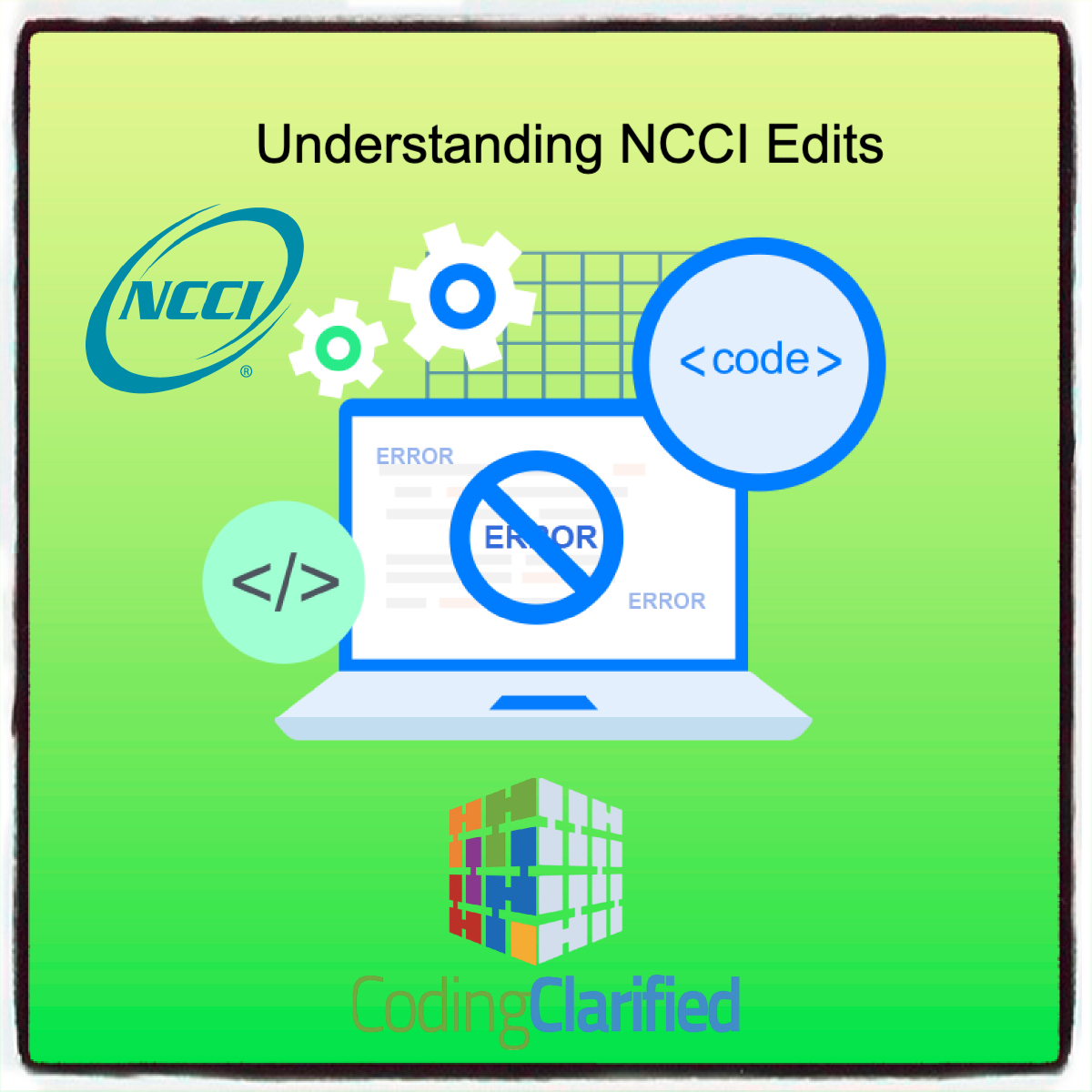Understanding NCCI Edits: A Guide to Medicare Guidelines for Medical Coding
Medical coding is essential for healthcare providers to ensure accurate billing and compliance with Medicare regulations. One key component of this process is the National Correct Coding Initiative (NCCI) edits. These edits are crucial for preventing improper payments and ensuring that services are billed correctly. In this blog, we will explore the purpose of NCCI edits, how they work, and their implications for medical coding practices.
What are NCCI Edits?
The NCCI was developed by the Centers for Medicare & Medicaid Services (CMS) to promote correct coding methodologies and to prevent inappropriate payment for services that should not be billed together. NCCI edits are classified into three categories:
- Procedure-to-Procedure (PTP) Edits: These edits identify pairs of services that should not be billed together under certain circumstances. For example, if a procedure is considered a component of a more comprehensive service, the more comprehensive service is typically billed alone. https://www.cms.gov/medicare/coding-billing/national-correct-coding-initiative-ncci-edits/medicare-ncci-procedure-procedure-ptp-edits#:~:text=National%20Correct%20Coding%20Initiative%20(NCCI)%20Procedure%2Dto%2DProcedure,associated%20modifier%20is%20also%20reported.
- Medically Unlikely Edits (MUEs): These edits set limits on the number of times a service or procedure can be billed for a single patient on a single day. This helps prevent billing for excessive services that are unlikely to be medically justified. https://www.cms.gov/medicare/coding-billing/national-correct-coding-initiative-ncci-edits/medicare-ncci-medically-unlikely-edits#:~:text=National%20Correct%20Coding%20Initiative%20(NCCI)%20Medically%20Unlikely%20Edits%20(MUEs,MUEs%20is%20subject%20to%20change.
- Modifiers: NCCI also uses modifiers to provide additional information about a service or procedure. Certain modifiers can override edits when appropriate documentation supports the use of the modifier. CPT Medical Modifiers https://codingclarified.com/cpt-medical-modifiers/
Purpose of NCCI Edits
The NCCI edits are applied automatically during the claims adjustment process. Claims that violate the edits are flagged for denial or review, prompting providers to correct their coding
The primary goals of NCCI edits include:
- Preventing Billing Errors: By identifying potentially inappropriate code combinations, NCCI edits help reduce the likelihood of billing errors that could lead to audits or financial penalties.
- Enhancing Claims Processing: NCCI edits streamline the claims process by ensuring that only valid combinations of services are billed, thereby expediting payment.
- Promoting Compliance: Adhering to NCCI guidelines is essential for compliance with Medicare rules, helping providers avoid potential legal and financial repercussions.
How NCCI Edits Work
NCCI edits are applied during the claims review process. When a healthcare provider submits a claim, the billing software checks the codes against the NCCI edits database. If a claim includes services that are subject to edits, the following outcomes may occur:
- Claim Denial: If the edits indicate that the services cannot be billed together, the claim may be denied, and the provider will need to revise the claim accordingly.
- Payment Reduction: In some cases, one of the services may be denied while the other is paid, depending on the nature of the codes involved.
- Modifier Override: If a provider believes that the services should be billed together (due to unique circumstances), they can apply a modifier to the appropriate code. However, this requires supporting documentation to justify the modifier’s use.
Implications for Medical Coders
For medical coders, understanding and correctly applying NCCI edits is vital for several reasons:
- Accuracy in Coding: Coders must be familiar with the NCCI edits applicable to the codes they are working with to ensure accurate submissions.
- Staying Updated: NCCI edits are updated quarterly, so coders must keep abreast of any changes to the guidelines that could affect coding practices.
- Documentation Support: Coders should collaborate closely with healthcare providers to ensure that documentation is sufficient to support any modifiers applied and to justify billing combinations.
NCCI edits are a fundamental aspect of the Medicare coding process, aimed at promoting correct coding and preventing improper payments. By understanding how these edits work and their implications for medical coding, healthcare providers and coders can enhance compliance, improve claims processing, and ultimately support better patient care. Staying informed and diligent in applying these guidelines is essential for successful coding and billing in the ever-evolving healthcare landscape.
The NCCI edits are reviewed and updated quarterly to reflect changes in medical practice, coding guidelines, and policy updates. NCCI edit files are available for download from the CMS website.

